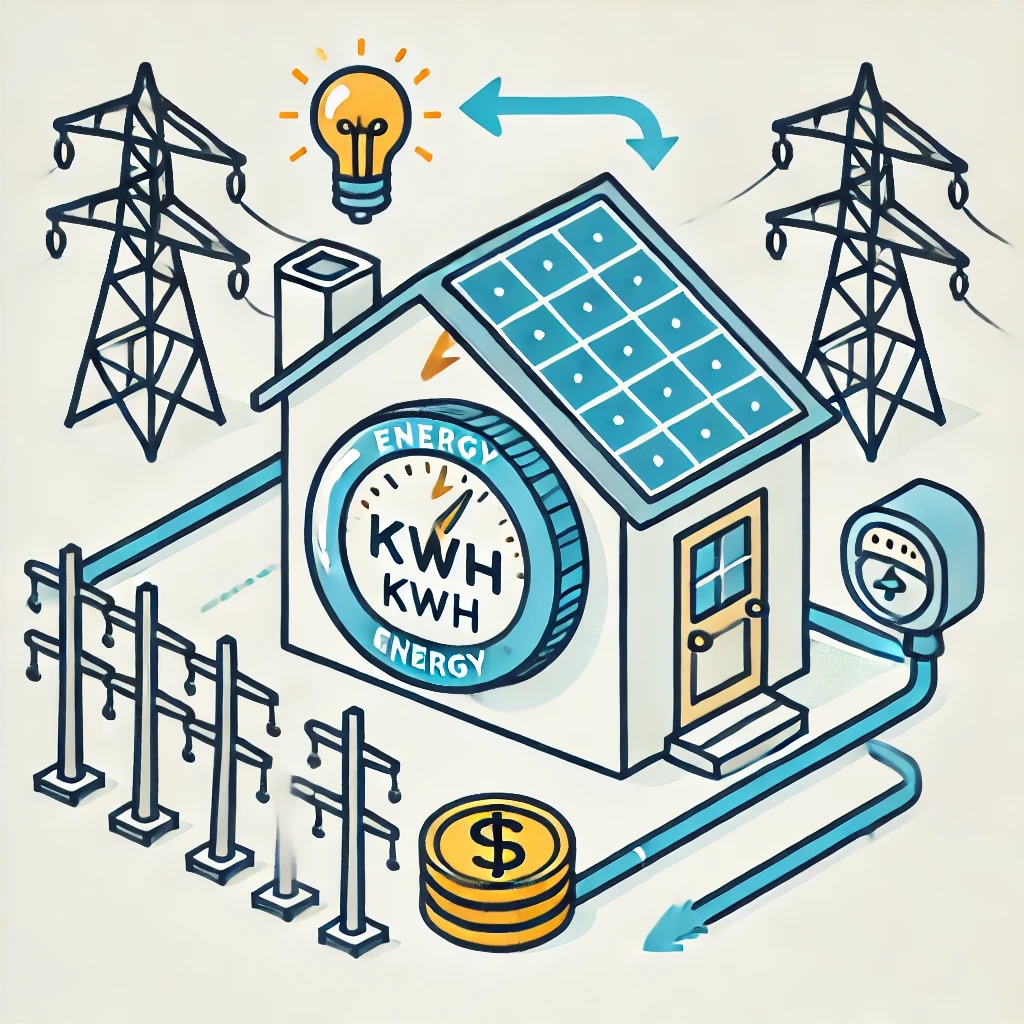
Understanding Net Metering in Virginia: A Key to Solar Savings
As solar energy continues to gain traction, many homeowners in Virginia are considering the switch to solar power. One critical aspect of this transition is net metering, a policy that plays a vital role in maximizing solar savings and minimizing costs. In this blog post, we’ll explore what net metering is, how it works in Virginia, and why it’s essential for those looking to invest in solar energy.
What is Net Metering?
Net metering is a billing arrangement that allows solar energy system owners to receive credits for the excess electricity their systems produce. When your solar panels generate more energy than your home consumes, the surplus energy is sent back to the grid. In return, you receive credits that offset your future electricity bills. This process is crucial for solar users, as it maximizes the financial benefits of generating your own power.
How Does Net Metering Work in Virginia?
In Virginia, net metering is available for residential and commercial solar installations. The state’s laws allow customers to receive credits for each kilowatt-hour (kWh) of excess energy they feed into the grid. These credits can then be used to reduce your electric bill when your solar system isn’t producing enough energy, such as during cloudy days or at night.
The net metering system in Virginia works well for homeowners, particularly when combined with solar energy production. With an average payback period of about 5 to 7 years, the savings can be substantial.
The Importance of Net Metering: Avoiding Battery Costs
One of the significant advantages of net metering is that it eliminates the need for expensive battery storage systems. While batteries can provide energy during outages or at night, they come with a hefty price tag—often upwards of $15,000. By utilizing net metering, homeowners can effectively draw on the grid during times when their solar systems aren’t producing enough energy, avoiding the need for such costly investments.
Financial Benefits of Net Metering
Understanding Net Metering in Virginia: A Key to Solar Savings
As solar energy continues to gain traction, many homeowners in Virginia are considering the switch to solar power. One critical aspect of this transition is net metering, a policy that plays a vital role in maximizing solar savings and minimizing costs. In this blog post, we’ll explore what net metering is, how it works in Virginia, and why it’s essential for those looking to invest in solar energy.
What is Net Metering?
Net metering is a billing arrangement that allows solar energy system owners to receive credits for the excess electricity their systems produce. When your solar panels generate more energy than your home consumes, the surplus energy is sent back to the grid. In return, you receive credits that offset your future electricity bills. This process is crucial for solar users, as it maximizes the financial benefits of generating your own power.
How Does Net Metering Work in Virginia?
In Virginia, net metering is available for residential and commercial solar installations. The state’s laws allow customers to receive credits for each kilowatt-hour (kWh) of excess energy they feed into the grid. These credits can then be used to reduce your electric bill when your solar system isn’t producing enough energy, such as during cloudy days or at night.
The net metering system in Virginia works well for homeowners, particularly when combined with solar energy production. With an average payback period of about 5 to 7 years, the savings can be substantial.
The Importance of Net Metering: Avoiding Battery Costs
One of the significant advantages of net metering is that it eliminates the need for expensive battery storage systems. While batteries can provide energy during outages or at night, they come with a hefty price tag—often upwards of $15,000. By utilizing net metering, homeowners can effectively draw on the grid during times when their solar systems aren’t producing enough energy, avoiding the need for such costly investments.
Financial Benefits of Net Metering
1. Reduced Energy Bills: By offsetting your energy consumption with solar credits, you can significantly lower your monthly utility bills.
2. Increased Return on Investment (ROI): With lower upfront costs and higher savings potential, net metering enhances the overall ROI of your solar system.
3. Stability Against Rising Energy Costs: As electricity prices continue to rise, net metering provides a hedge against these increases, allowing homeowners to enjoy predictable energy expenses.
4. Environmental Impact: By maximizing the use of solar energy and reducing reliance on fossil fuels, net metering contributes to a greener, more sustainable energy future
Conclusion
Net metering is a crucial element for anyone considering solar energy in Virginia. It not only enhances your financial savings but also provides flexibility and peace of mind without the hefty investment in battery storage. By understanding and taking advantage of net metering, you can fully harness the benefits of solar energy and contribute to a more sustainable future. If you’re thinking about going solar, make sure to explore the net metering options available to you—it’s a vital step toward achieving significant energy savings and a more environmentally-friendly lifestyle.